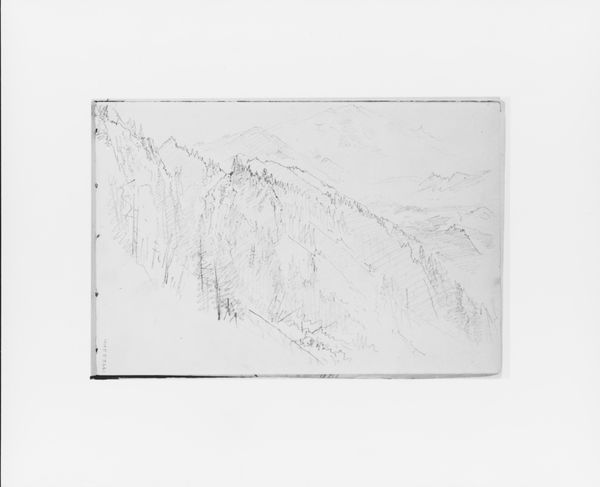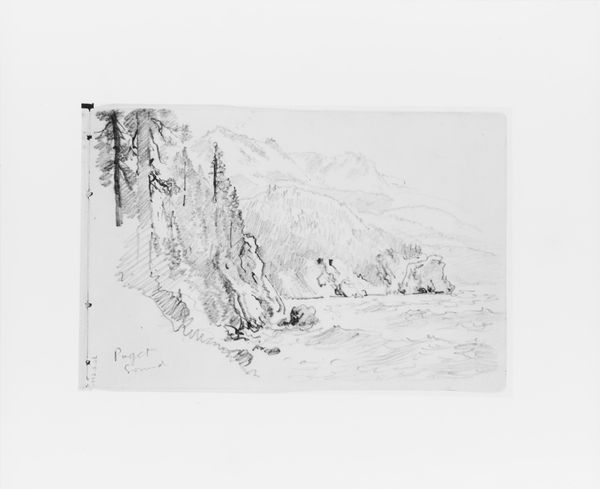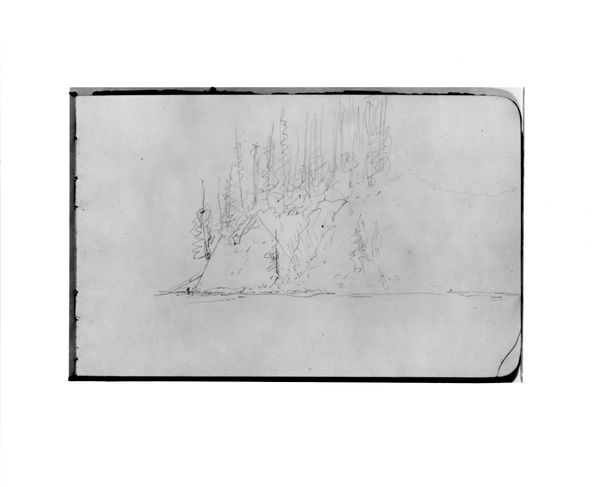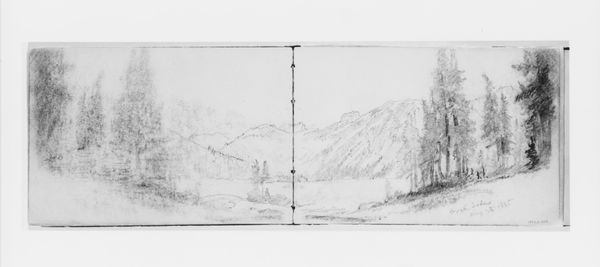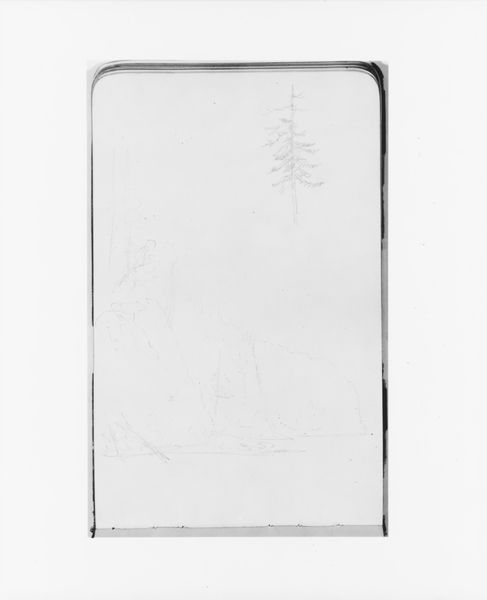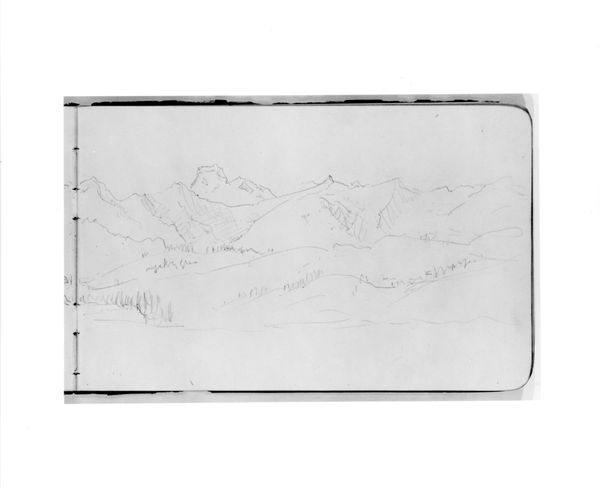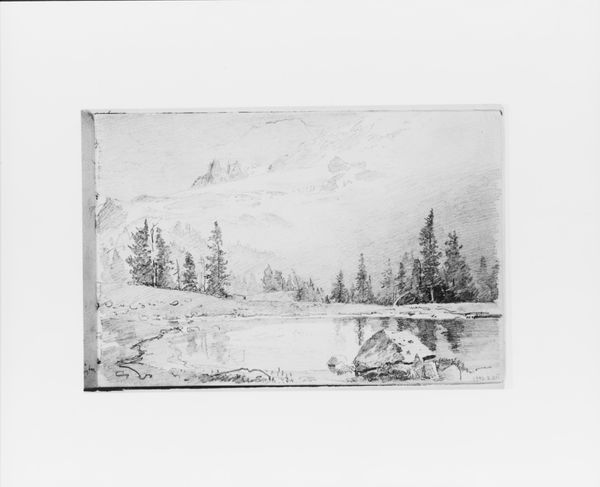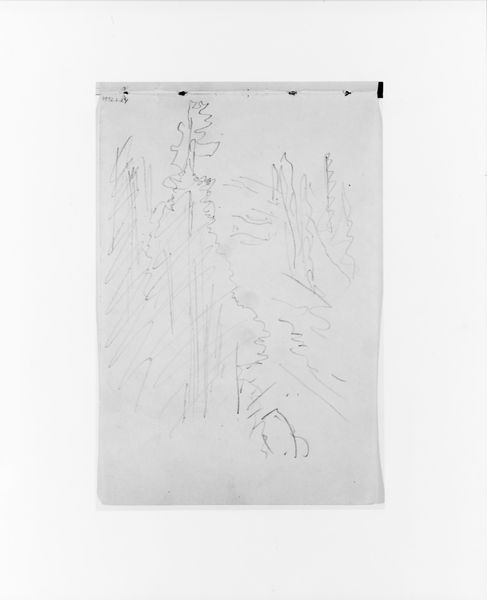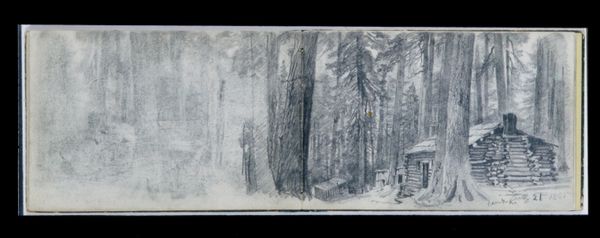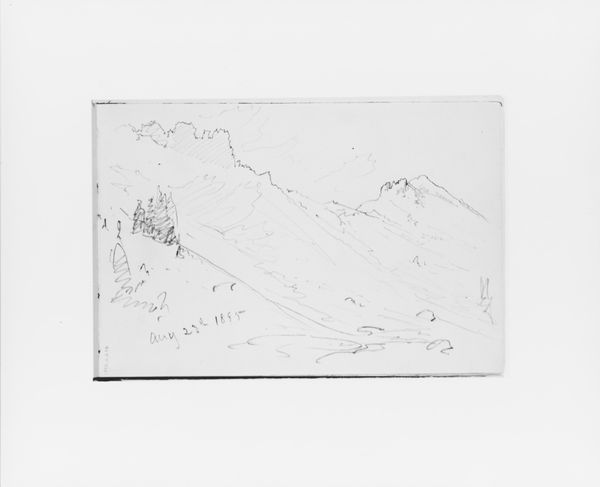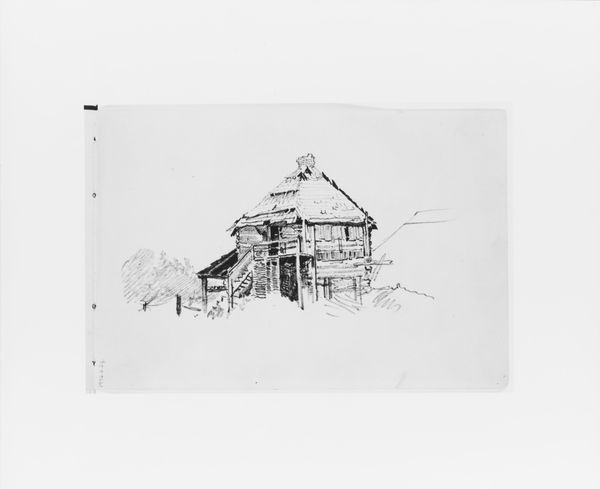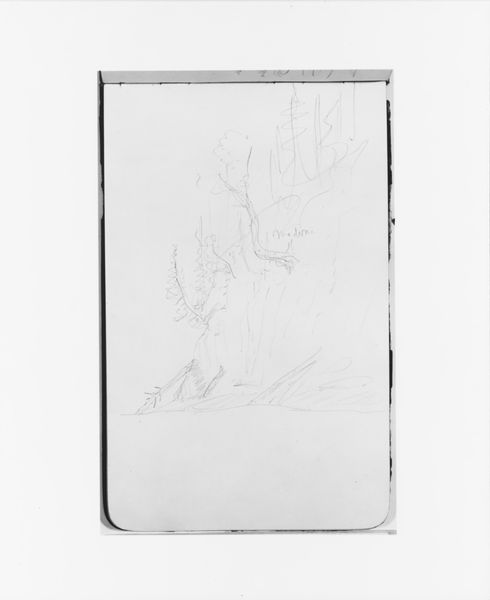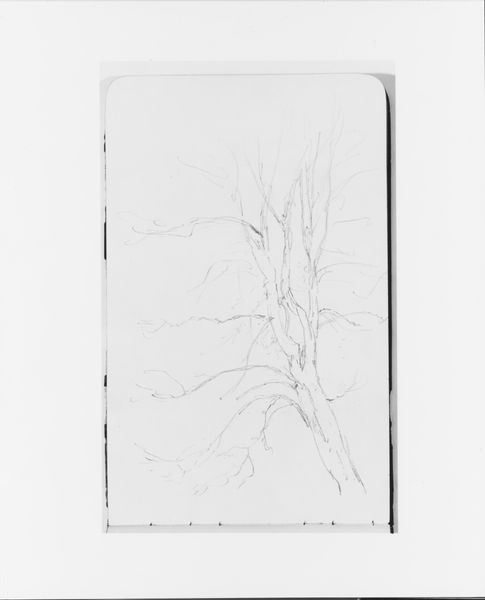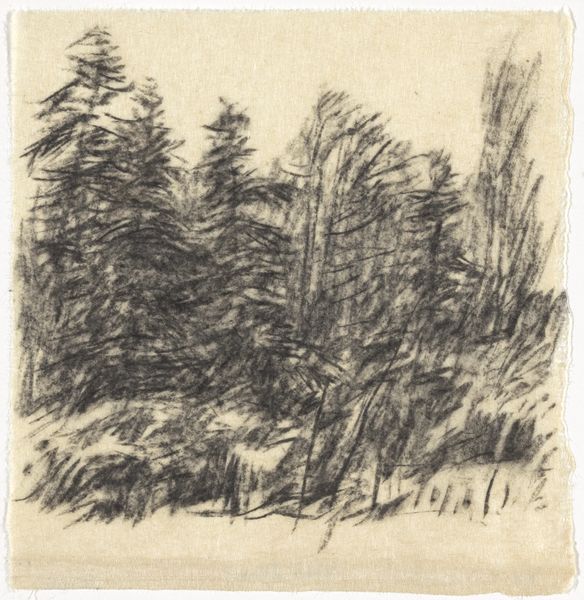
drawing, charcoal
#
tree
#
drawing
#
natural shape and form
#
mother nature
#
natural formation
#
impressionism
#
landscape
#
nature
#
fluid art
#
forest
#
heaven and earth
#
abstract nature shot
#
naturalistic tone
#
charcoal
#
natural texture
#
natural form
#
realism
Dimensions: 5 x 7 1/2 in. (12.7 x 19.1 cm)
Copyright: Public Domain
Editor: This is "Forest Interior (from Sketchbook X)" by William Trost Richards, created in 1885. It’s a charcoal drawing, and the starkness of the black and white really gives it a dramatic, almost gothic, feel. What do you see in this piece from a formalist perspective? Curator: The interplay of light and shadow is immediately striking. Richards uses charcoal to create a sense of depth and texture within the forest. Consider the verticality of the trees, how they dominate the composition, drawing the eye upwards. The artist manipulates line quality to suggest spatial recession. Editor: So, you’re focusing on how the artist’s technique contributes to the overall effect? Curator: Precisely. Note how the varying densities of charcoal create a contrast between the foreground and background. The marks coalesce in areas to indicate the mass of the tree trunks, and more sparse gestural strokes define branches. It’s through these structural relations that Richards evokes the experience of being within a forest. Editor: I see how you can almost feel the density and light filtering through. So, understanding the composition itself helps us understand the art, apart from the subject? Curator: Yes. A formalist reading prompts us to analyze how the constituent elements – line, form, and tone – interact to construct meaning. How, through visual language, does the drawing replicate our encounter with nature? How the formal elements work together. Editor: That’s interesting. I initially saw it as a straightforward landscape, but focusing on the elements opens up a deeper appreciation for his technique and compositional choices. I never would have thought of it this way before. Curator: Formalism encourages that deeper analysis. Recognizing how an artist's choices impact our visual and intellectual experience offers new perspectives on even the simplest artwork.
Comments
No comments
Be the first to comment and join the conversation on the ultimate creative platform.
